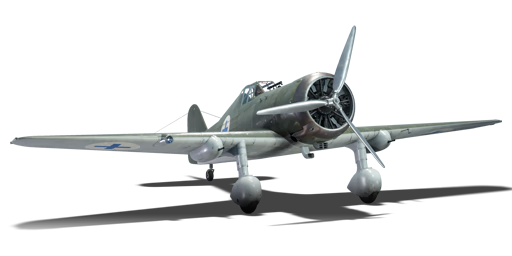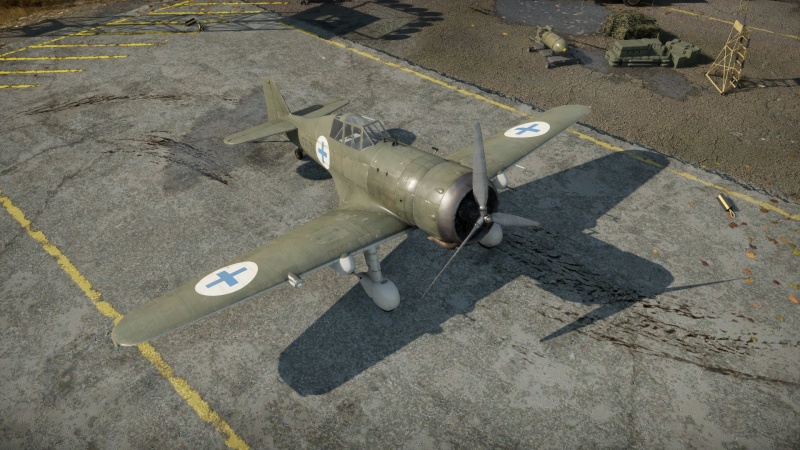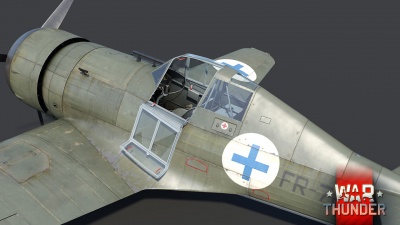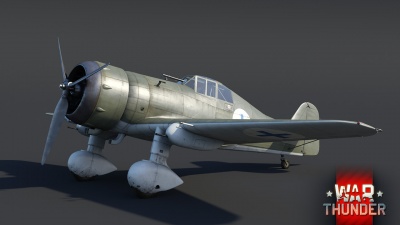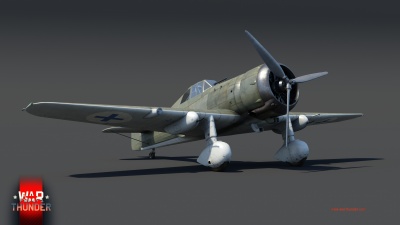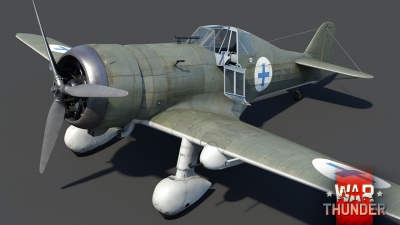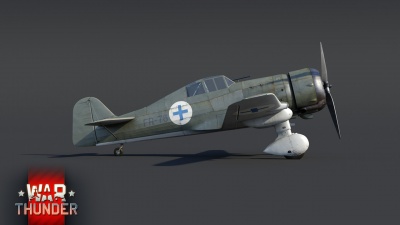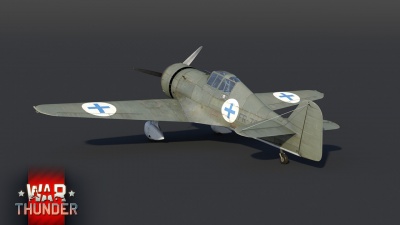Difference between revisions of "Fokker D.XXI (Sweden)"
(Added store link) |
(Added manufacturer) |
||
| Line 140: | Line 140: | ||
Development of what would become the Fokker D.XXI began in late 1934 with engineers at the Fokker company seeking to design a modern fighter aircraft, incorporating some of the latest aviation technologies. In 1935, the Dutch Air Force ordered the construction of a prototype which would be evaluated by its East Indies branch, as a result of the aircraft being seen as suitable for defending Dutch overseas assets. | Development of what would become the Fokker D.XXI began in late 1934 with engineers at the Fokker company seeking to design a modern fighter aircraft, incorporating some of the latest aviation technologies. In 1935, the Dutch Air Force ordered the construction of a prototype which would be evaluated by its East Indies branch, as a result of the aircraft being seen as suitable for defending Dutch overseas assets. | ||
| − | Although its maiden flight in 1936 showed enough promise, the fate of the Fokker D.XXI was | + | Although its maiden flight in 1936 showed enough promise, the fate of the Fokker D.XXI was "hanging in the air" for a time due to a change in doctrine within the Dutch Air Force. As a result, Fokker began looking into promoting the aircraft on the export market, hoping to find foreign customers. |
Fortunately, Fokker received interest from both Denmark and Finland to purchase a number of aircraft as well as rights to production. At the same time, domestic interest was also revived, resulting in the start of production in 1937. | Fortunately, Fokker received interest from both Denmark and Finland to purchase a number of aircraft as well as rights to production. At the same time, domestic interest was also revived, resulting in the start of production in 1937. | ||
| − | Despite being a Dutch design, the Fokker D.XXI was predominantly produced and employed by Finland. Having built and operated around ⅔ of all D.XXIs, the Finnish Fokkers distinguished themselves during the Winter and Continuation War, although with less success in the latter due to their dated design. The Dutch Fokkers also put up a stiff resistance to the invading German forces in May 1940, shooting down a number of enemy aircraft, including several superior Messerschmitt Bf 109s. | + | Despite being a Dutch design, the Fokker D.XXI was predominantly produced and employed by Finland. Having built and operated around ⅔ of all D.XXIs, the Finnish Fokkers distinguished themselves during the Winter and Continuation War, although with less success in the latter due to their dated design. The Dutch Fokkers also put up a stiff resistance to the invading German forces in May 1940, shooting down a number of enemy aircraft, including several superior Messerschmitt Bf 109s. In the end, approximately 150 D.XXIs were built, serving up until 1949 with Finnish forces. |
== Media == | == Media == | ||
| Line 172: | Line 172: | ||
* [https://forum.warthunder.com/index.php?/topic/518099-fokker-dxxi/ Official data sheet - more details about the performance] | * [https://forum.warthunder.com/index.php?/topic/518099-fokker-dxxi/ Official data sheet - more details about the performance] | ||
| + | {{AirManufacturer Fokker}} | ||
{{Sweden fighters}} | {{Sweden fighters}} | ||
{{Sweden premium aircraft}} | {{Sweden premium aircraft}} | ||
Revision as of 17:46, 9 April 2021
Contents
Description
The ▄Fokker D.XXI is a premium rank II Swedish fighter with a battle rating of 2.3 (AB), 2.0 (RB), and 1.7 (SB). It was introduced in Update "Ixwa Strike".
General info
Flight performance
The Fokker D.XXI is a fairly pleasurable aircraft to play. Its manoeuvrability is quite good, being able to outturn a lot of aircraft of this BR. Also, its climb rate is great for its BR. However, keep in mind that it it rather slow, and might not be able to keep up with other fighters.
| Characteristics | Max Speed (km/h at 5,000 m) |
Max altitude (metres) |
Turn time (seconds) |
Rate of climb (metres/second) |
Take-off run (metres) | |||
|---|---|---|---|---|---|---|---|---|
| AB | RB | AB | RB | AB | RB | |||
| Stock | 409 | 399 | 10100 | 16.7 | 17.4 | 11.7 | 11.6 | 150 |
| Upgraded | 440 | 425 | 15.3 | 16.0 | 17.2 | 14.2 | ||
Details
| Features | ||||
|---|---|---|---|---|
| Combat flaps | Take-off flaps | Landing flaps | Air brakes | Arrestor gear |
| X | X | ✓ | X | X |
| Limits | ||||||
|---|---|---|---|---|---|---|
| Wings (km/h) | Gear (km/h) | Flaps (km/h) | Max Static G | |||
| Combat | Take-off | Landing | + | - | ||
| 0 | 290 | N/A | N/A | 240 | ~15 | ~6 |
| Optimal velocities (km/h) | |||
|---|---|---|---|
| Ailerons | Rudder | Elevators | Radiator |
| < 320 | < 240 | < 500 | > 320 |
Survivability and armour
- No armour
- Self-sealing fuel tanks (1 in front of pilot)
Modifications and economy
Armaments
Offensive armament
The Fokker D.XXI (Sweden) is armed with:
- 2 x 20 mm Oerlikon FF cannons, wing-mounted (60 rpg = 120 total)
- 2 x 7.7 mm FN-Browning M.36 No.3 machine guns, nose-mounted (500 rpg = 1,000 total)
Usage in battles
Describe the tactics of playing in the aircraft, the features of using aircraft in a team and advice on tactics. Refrain from creating a "guide" - do not impose a single point of view, but instead, give the reader food for thought. Examine the most dangerous enemies and give recommendations on fighting them. If necessary, note the specifics of the game in different modes (AB, RB, SB).
Manual Engine Control
| MEC elements | ||||||
|---|---|---|---|---|---|---|
| Mixer | Pitch | Radiator | Supercharger | Turbocharger | ||
| Oil | Water | Type | ||||
| Controllable | Controllable Not auto controlled |
Not controllable Not auto controlled |
Not controllable Not auto controlled |
Separate | Not controllable 1 gear |
Not controllable |
Pros and cons
Pros:
- Powerful armament consisting of 2 x 20 mms and 2 x 7.7 mms, can easily start fires and shred biplanes
- Above average climb rate for its BR
- Only one fuel tank, so fires usually would not be started if the aircraft was tailed
- Great turn time (16 seconds in RB)
- Engine takes a while to overheat on WEP
- Does not rip or even compress at little over 600 km/h, allowing it to safely dive on its opponents
- Short takeoff run
- As a premium aircraft, has better SL and RP rewards than regular aircraft
- Fixed landing gear makes landings easier and more simplified
Cons:
- Rather slow for its BR
- Only has landing flaps
- 20 mm cannons technically only have 60 rounds (60 rounds per gun, but they fire at the same time)
- Cannons have a rather slow rate of fire
- Cannons easily overheat after a short time of continuous firing
- No armour
History
Devblog
Development of what would become the Fokker D.XXI began in late 1934 with engineers at the Fokker company seeking to design a modern fighter aircraft, incorporating some of the latest aviation technologies. In 1935, the Dutch Air Force ordered the construction of a prototype which would be evaluated by its East Indies branch, as a result of the aircraft being seen as suitable for defending Dutch overseas assets.
Although its maiden flight in 1936 showed enough promise, the fate of the Fokker D.XXI was "hanging in the air" for a time due to a change in doctrine within the Dutch Air Force. As a result, Fokker began looking into promoting the aircraft on the export market, hoping to find foreign customers.
Fortunately, Fokker received interest from both Denmark and Finland to purchase a number of aircraft as well as rights to production. At the same time, domestic interest was also revived, resulting in the start of production in 1937.
Despite being a Dutch design, the Fokker D.XXI was predominantly produced and employed by Finland. Having built and operated around ⅔ of all D.XXIs, the Finnish Fokkers distinguished themselves during the Winter and Continuation War, although with less success in the latter due to their dated design. The Dutch Fokkers also put up a stiff resistance to the invading German forces in May 1940, shooting down a number of enemy aircraft, including several superior Messerschmitt Bf 109s. In the end, approximately 150 D.XXIs were built, serving up until 1949 with Finnish forces.
Media
See also
Links to the articles on the War Thunder Wiki that you think will be useful for the reader, for example:
- reference to the series of the aircraft;
- links to approximate analogues of other nations and research trees.
External links
| Royal Dutch Aircraft Factory Fokker (Koninklijke Nederlandse Vliegtuigenfabriek Fokker) | |
|---|---|
| Strike Aircraft | ◗Fokker G.IA |
| Jet Aircraft | ▄Meteor F Mk.8* · ◘Hunter F.6* |
| Export | ▄Fokker D.XXI-3 · ▄Fokker D.XXI |
| * Licensed Production / Variants | |
| See Also | Gloster · Hawker · Valtion Lentokonetehdas |
| Sweden fighters | |
|---|---|
| ASJA | J6B |
| Saab | J21A-1 · J21A-2 · A21A-3 |
| FFVS | J22-A · J22-B |
| Foreign Import | J8A · Iacobi's J8A · J9 Early · J11 · J20 · J26 David · J26 |
| Finland | |
| VL | Mörkö-Morane · VL Myrsky II · VL Pyörremyrsky |
| (NL) Fokker | ▄Fokker D.XXI-3 · ▄Fokker D.XXI |
| (DE) Messerschmitt | ▄Bf 109 G-2 · ▄Bf 109 G-6 Erla · ▄Bf 109 G-6 |
| Other | ▄B-239 · ▄Hurricane Mk I/L |
| Sweden premium aircraft | |
|---|---|
| Fighters | Iacobi's J8A · ▄Fokker D.XXI · Mörkö-Morane · VL Myrsky II · J9 Early · J26 David · VL Pyörremyrsky · ▄Bf 109 G-6 |
| Jet fighters | J29D · J35A · Saab J35XS · JA37DI F21 |
| Strike aircraft | SAAB-105OE · A32A Röd Adam |
| Bomber | ▄Ar 196 A-5 |


